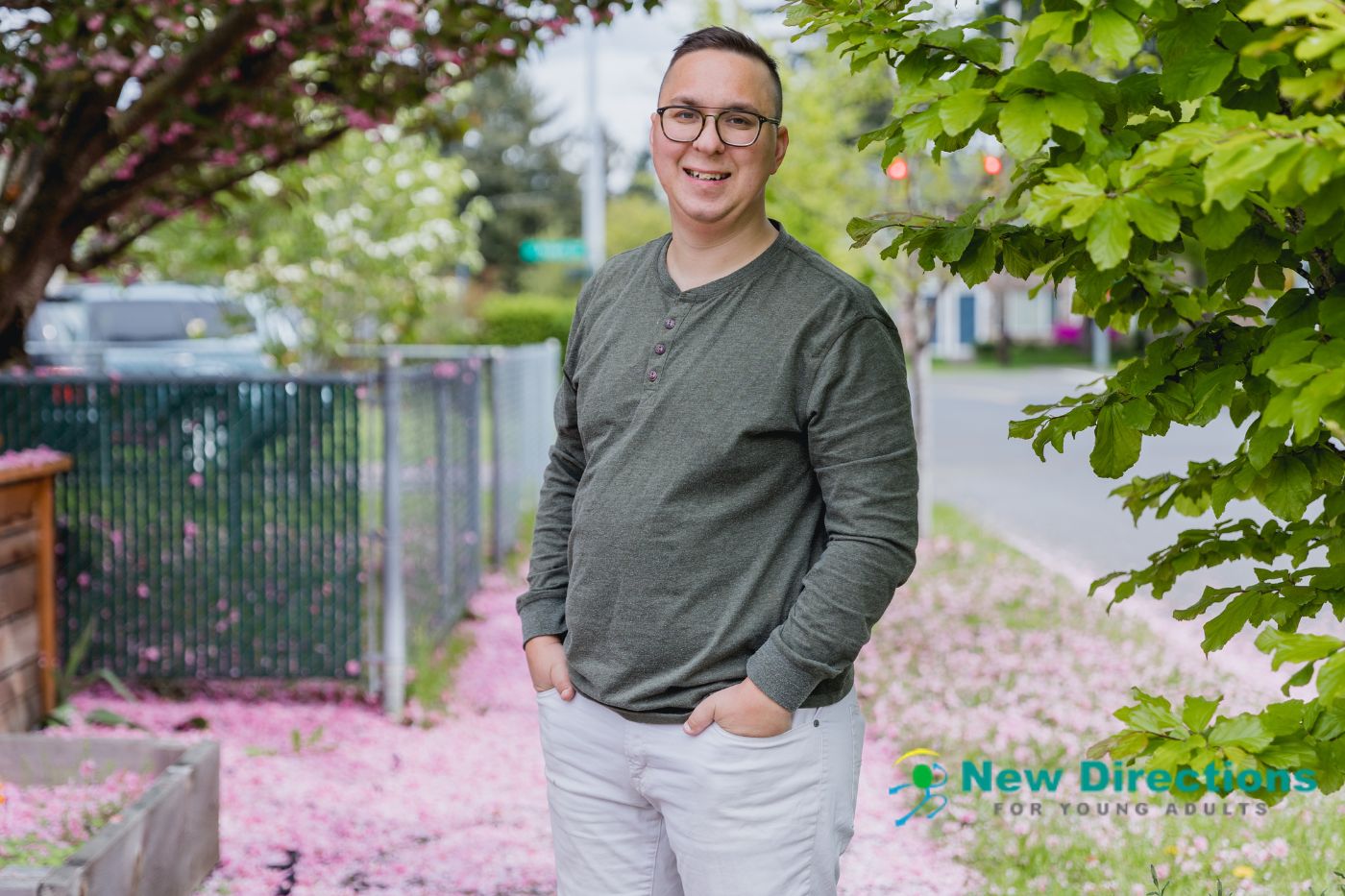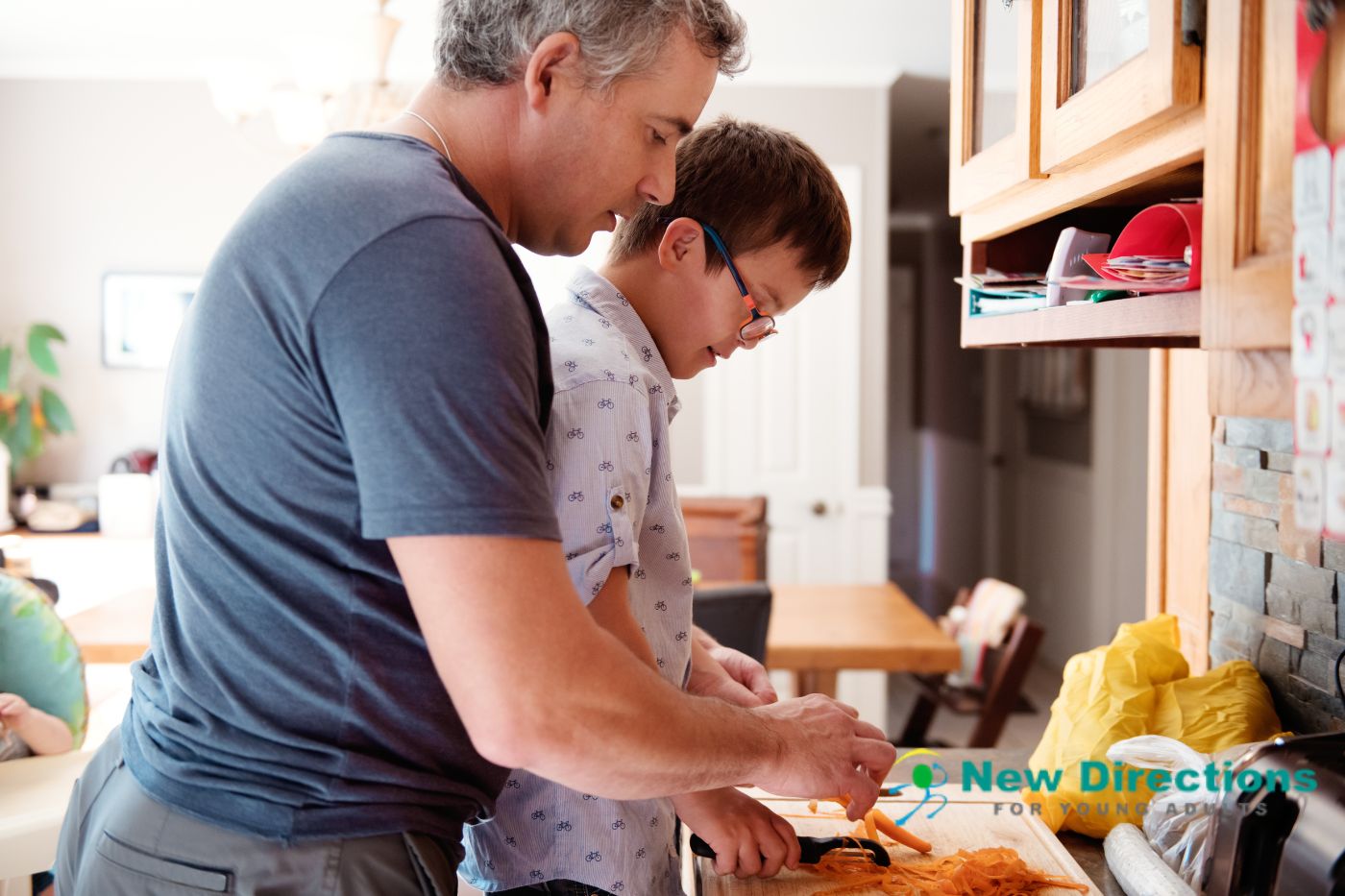Did you know that 85% of young adults with Autism Spectrum Disorder (ASD) still live with their parents after high school? This fact shows how important it is for young people with ASD to learn independent living skills. Mastering daily tasks is key to becoming independent and growing as a person.
Independent living skills cover many self-care tasks, like personal hygiene and managing money. These skills help build a life of fulfillment and self-reliance. By learning these skills, you can open doors to a more independent future.
Learning life skills is more than just knowing how to cook or clean. It’s about building confidence to make choices, join in community activities, and talk effectively in different situations. With the right training, you can get the tools you need to succeed in life, from having fun to taking care of your home and yourself.
Key Takeaways
- 85% of young adults with ASD live with parents post-high school
- Independent living skills are crucial for autonomy and personal growth
- Self-care abilities include personal hygiene, money management, and more
- Life skills development enhances decision-making and community participation
- Targeted training can improve confidence and overall quality of life
Understanding Independent Living Skills for Young Adults with ASD

For young adults with Autism Spectrum Disorder (ASD), learning independent living skills is crucial. These skills help them manage daily tasks and fit into their communities. Let’s look at what these skills are and why they matter.
Defining Independent Living Skills
Independent living skills are the abilities needed for everyday life. For young adults with ASD, this includes self-care, managing their homes, and being part of their communities. These skills help them be more self-sufficient and live better lives.
Importance of Life Skills Development
Learning life skills is very important for people with autism. Studies show that many teens with ASD struggle with daily tasks. Even those who are smart may find these tasks hard. Getting these skills can really help them become more independent and confident.
Categories of Essential Life Skills
Essential life skills for young adults with ASD include:
- Personal hygiene and self-care
- Home management (cooking, cleaning, laundry)
- Financial management
- Transportation
- Social communication
- Employment skills
- Safety awareness
Using assistive technology can help develop these skills. With the right training and support, young adults with ASD can improve a lot. This leads to more independence and a better life.
Assessing Current Skills and Setting Goals
Evaluating your current abilities is key to living independently. The Community-Based Skills Assessment (CSA) is a great tool. It helps you see your strengths and what you need to work on in self-care, budgeting, cooking, cleaning, and safety.
Using the Community-Based Skills Assessment
The CSA, from Virginia Commonwealth University, looks at skills in living in the community, getting around, and managing money. It gives you a full picture of your abilities. This helps you make a plan to improve your skills.
Identifying Strengths and Areas for Improvement
With the CSA, you can see what you’re good at and what needs work. Knowing this is key to focusing on skills that matter most for your independence. For example, you might work on cooking healthy meals or handling your budget better.
Setting Realistic and Achievable Goals
Knowing what you can do now helps you set SMART goals for getting better. Say you want to get better at cooking. Your goal might be to cook three simple meals on your own in a month. Start small and celebrate your wins.
- Focus on one skill area at a time
- Break down larger goals into smaller, manageable steps
- Celebrate your progress along the way
Assessing your skills and setting goals is a big step towards more independence. Remember, improving in self-care, budgeting, cooking, cleaning, and safety takes time. Be kind to yourself as you move forward.
Essential Self-Care and Personal Hygiene Skills
Self-care and personal hygiene are crucial for young adults with ASD. They help you live independently and feel confident in social situations. Learning these skills is important for your well-being and managing your life.
Let’s look at some key self-care skills:
- Hand washing
- Toileting
- Bathing/showering
- Shaving
- Hair care
These tasks can be challenging. For instance, hand washing might be hard if you can’t see dirt. Or, the smell of soap could be too much. Toileting can be tough if you can’t tell when you need to go or if you have trouble with clothes.
- Parallel talk: Explain tasks as you do them
- Task analysis: Break down self-care into smaller steps
- Storyboards: Use visual aids to learn tasks
Good time management is key to building these habits. Make a daily routine that includes all your self-care tasks. This will help you become more independent and feel accomplished.
| Personal Space | Distance |
|---|---|
| Intimate | 18 inches |
| Personal | 1.5-4 feet |
| Social | 4-12 feet |
| Public | More than 12 feet |
Knowing about personal space is key to self-care and social skills. Use this table to help you in different social situations.
Developing Home Management and Household Skills
Learning household skills is key for young adults with ASD. These skills help them live independently and take care of themselves. Let’s look at important areas for effective home management.

Cooking and Meal Planning
Cooking is a must-have skill for living on your own. Begin with easy recipes and move to harder ones. Meal planning is good for your wallet and health. Try planning meals for a week on a budget to get better at cooking and managing money.
Cleaning and Organization
Keeping your living space clean is crucial. Break cleaning tasks into smaller steps for easier handling. Use visual schedules to help finish tasks. Getting involved in household chores teaches responsibility and independence.
Laundry and Clothing Care
Learning how to take care of your clothes is key for personal hygiene. Teach the basics of sorting, washing, and folding clothes. Set a weekly laundry routine to make this skill stick. Remember, being consistent helps build these habits.
By focusing on these skills, young adults with ASD can gain confidence in managing their homes. This helps them move towards independent living and improves their life quality.
Safety Awareness and Emergency Preparedness
For young adults with ASD living on their own, knowing how to stay safe is key. These skills help them fit in and feel secure in different places. Let’s look at important areas to work on for better safety.
Identifying and Responding to Emergencies
It’s important to know how to spot and handle emergencies. Practice leaving buildings in fire drills and remember several ways out. Also, learning to turn off utilities can stop more damage during emergencies.
- Learn to use fire extinguishers
- Practice shutting off natural gas, water, and electricity
- Memorize emergency exit routes
Personal Safety in Various Environments
Being street smart and knowing how to stay safe in public is key. Set goals to get better at recognizing traffic signs, using crosswalks, and acting right in public places.
| Skill | Goal | Success Rate |
|---|---|---|
| Traffic Sign Recognition | Identify and explain sign functions | 95% of opportunities |
| Crosswalk Usage | Consistent use on school trips | 10 out of 10 outings |
| Public Behavior | Follow written rules in libraries | 8 out of 10 visits |
Using Technology for Safety and Communication
Technology is a big help in staying safe and independent. Smartphones can be used for finding your way, calling for help, and getting safety info.
Learning how to use public transport safely is also key. Practice checking bus schedules, picking the right bus, and paying for your ticket to feel more confident when out and about.
How New Directions for Young Adults Can Help You
At New Directions for Young Adults, we specialize in equipping young adults with ASD with the essential life skills necessary for independent living. Through our personalized program, you will spend an average of 2.5 years mastering key areas such as self-care, financial management, and social interactions, paving the way for a successful and independent adulthood.
Our proven approach is validated by a 100% satisfaction rate among participants and their parents, who report significant improvements in independence and quality of life.
Ready to start your journey toward independence? Contact New Directions today and take the first step towards a fulfilling future.





